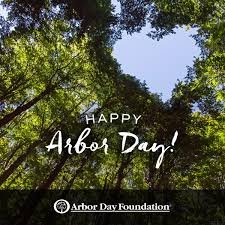- Homepage
- Entertainment
- Celebrating Arbor Day: A Tribute to Trees and Environmental Stewardship
Celebrating Arbor Day: A Tribute to Trees and Environmental Stewardship
Celebrating Arbor Day
Arbor Day, celebrated annually on the last Friday in April, is a time dedicated to appreciating and planting trees. It serves as a reminder of the vital role that trees play in our environment and communities. From its humble beginnings in the United States to its global significance today, Arbor Day continues to inspire individuals and communities worldwide to plant, nurture, and celebrate trees.

Introduction to Arbor Day
Arbor Day, which translates to “Tree Day,” originated in Nebraska in 1872 when J. Sterling Morton, a pioneer and nature lover, proposed a holiday dedicated to tree planting. The first Arbor Day saw over one million trees planted across Nebraska. Since then, Arbor Day has grown into a worldwide celebration, promoting environmental awareness and conservation.
Importance of Arbor Day
Arbor Day serves as a crucial reminder of the significance of trees in our lives. Trees provide us with oxygen, filter air pollutants, and offer habitats for diverse wildlife. They also contribute to soil health, prevent erosion, and enhance the beauty of our landscapes.
Historical Background
The concept of Arbor Day dates back to ancient times when civilizations revered trees for their life-sustaining properties. However, the modern Arbor Day movement began in the United States in the 19th century with the goal of promoting tree planting and conservation.
Benefits of Trees
Trees offer a wide array of benefits to both the environment and society. Understanding these benefits is essential for fostering appreciation and conservation efforts.
Environmental Benefits
Trees play a crucial role in combating climate change by absorbing carbon dioxide, a major greenhouse gas. They also help mitigate the urban heat island effect by providing shade and reducing temperatures. Additionally, trees improve air quality by filtering pollutants and releasing oxygen into the atmosphere.

Social and Economic Benefits
In addition to their environmental impact, trees provide numerous social and economic benefits. They enhance property values, beautify neighborhoods, and create natural spaces for recreation and relaxation. Furthermore, trees contribute to sustainable forestry practices, supporting industries such as timber and paper production.
Arbor Day Traditions
Arbor Day is celebrated through various traditions and activities that highlight the importance of tree planting and conservation.
Tree Planting Ceremonies
One of the central traditions of Arbor Day is tree planting ceremonies. Communities, schools, and organizations come together to plant trees in parks, gardens, and public spaces. These ceremonies serve as opportunities for collaboration and environmental stewardship.
Community Events
Arbor Day often features community events such as tree giveaways, nature walks, and educational workshops. These events promote environmental awareness and encourage community involvement in tree planting and conservation efforts.
Celebrating Arbor Day Worldwide
While Arbor Day originated in the United States, it has since spread to countries around the world, each with its unique traditions and cultural significance.

International Arbor Day Celebrations
Many countries observe Arbor Day on different dates throughout the year, depending on their climate and growing seasons. However, the underlying message of tree planting and conservation remains consistent across cultures.
Cultural Significance
Arbor Day holds cultural significance in various societies, often symbolizing renewal, growth, and sustainability. In some cultures, Arbor Day is celebrated with rituals, ceremonies, and festivals that honor trees and the natural world.
Arbor Day Activities
Arbor Day inspires a wide range of activities and initiatives aimed at promoting tree planting and environmental stewardship.
Tree Planting Initiatives
Arbor Day encourages individuals and organizations to participate in tree planting initiatives, whether in urban areas, rural landscapes, or natural forests. These initiatives help replenish tree populations, restore ecosystems, and enhance biodiversity.
Educational Programs
Arbor Day provides an opportunity for educational programs that teach the importance of trees, sustainable forestry practices, and environmental conservation. These programs empower individuals of all ages to become advocates for the environment and active participants in tree planting efforts.
Arbor Day and Climate Change
In the face of climate change, Arbor Day takes on added significance as trees emerge as critical allies in mitigating its impacts.
Role of Trees in Mitigating Climate Change
Trees play a crucial role in combating climate change by sequestering carbon dioxide and reducing greenhouse gas emissions. Reforestation and afforestation efforts help offset carbon emissions and preserve ecosystems threatened by deforestation and habitat loss.

Reforestation Efforts
Arbor Day serves as a platform for promoting reforestation initiatives aimed at restoring degraded landscapes and protecting vulnerable ecosystems. By planting trees and restoring forests, we can mitigate the effects of climate change and preserve biodiversity for future generations.
Promoting Sustainability
Arbor Day advocates for sustainable forestry practices and urban forestry initiatives that prioritize the long-term health and vitality of tree populations.
Sustainable Forestry Practices
Sustainable forestry practices, such as selective logging and reforestation, ensure the responsible management of forest resources while preserving biodiversity and ecosystem integrity. By balancing environmental, economic, and social objectives, sustainable forestry promotes the health and resilience of forest ecosystems.
Urban Forestry Initiatives
In urban areas, Arbor Day promotes urban forestry initiatives that enhance green spaces, improve air quality, and mitigate the urban heat island effect. Urban forests provide numerous benefits to city dwellers, including shade, wildlife habitat, and recreational opportunities.
Arbor Day and Future Generations
Arbor Day plays a crucial role in shaping the attitudes and behaviors of future generations toward environmental stewardship and conservation.
Teaching Environmental Stewardship
Arbor Day provides educational opportunities for teaching environmental stewardship and instilling a sense of responsibility for caring for the natural world. By engaging youth in tree planting and conservation activities, we empower them to become environmental leaders and advocates for change.
Encouraging Youth Involvement
Arbor Day encourages youth involvement in tree planting initiatives, environmental education programs, and community service projects. By fostering a connection to nature and instilling a sense of environmental responsibility, we empower young people to become active participants in shaping a sustainable future.
Conclusion
Arbor Day serves as a poignant reminder of the importance of trees in our lives and the critical role they play in sustaining our planet. By celebrating Arbor Day, we honor the legacy of tree planting and conservation while inspiring future generations to continue the tradition of caring for our natural world.



